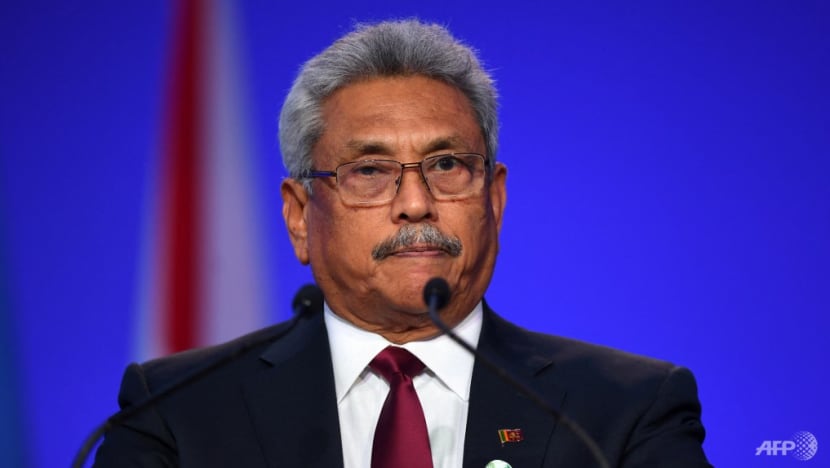Former Sri Lanka president Gotabaya Rajapaksa not accorded any privileges, immunity or hospitality by Singapore
Mr Rajapaksa flew to Singapore from the Maldives after fleeing Sri Lanka amid protests over an economic crisis.

File photo of Sri Lanka's President Gotabaya Rajapaksa on Nov 1, 2021. (Photo: AFP/Pool/Andy Buchanan)
SINGAPORE: Former Sri Lanka president Gotabaya Rajapaksa was not accorded any privileges, immunity or hospitality by the Singapore Government, said Foreign Affairs Minister Vivian Balakrishnan on Friday (Aug 1).
In a written answer to a parliamentary question from MP Gerald Giam (WP-Aljunied) about Mr Rajapaksa's arrival in Singapore, Dr Balakrishnan said: “In general, the Singapore Government does not accord privileges, immunity and hospitality to former heads of state or heads of government.
“Consequently, former president Gotabaya Rajapaksa was not accorded any privileges, immunity or hospitality.”
Mr Rajapaksa arrived in Singapore on a “private visit” on Jul 14, the Ministry of Foreign Affairs (MFA) said previously. CNA understands he has obtained a 14-day extension of his short-term visit pass, which means he can stay in Singapore until Aug 11.
He was ousted from office over his country’s economic crisis and fled to the Maldives before coming to Singapore.
A Sri Lankan Cabinet spokesperson said last week that the former president was not in hiding and would be treated in accordance with his status as a former president upon his return to Sri Lanka.
He resigned as president shortly after arriving in Singapore, and former prime minister Ranil Wickremesinghe was sworn in as president about a week later.
In a separate parliamentary question on Monday, MP Yip Hon Weng (PAP-Yio Chu Kang) asked Home Affairs Minister K Shanmugam about the Government’s response to concerns that Singapore will become a “destination for political fugitives”.
Mr Shanmugam said in a written answer: “Foreigners who possess a valid travel document and meet entry requirements will be allowed to come into Singapore. We also of course reserve the right to deny entry to a foreigner if we assess that to be in our national interests.
“If a foreigner coming into Singapore is wanted by his government, and his government has made a request, the Government will render assistance in accordance with our laws.”
He added that travellers transiting through Singapore have “technically not entered” the country if they remain within the transit area and do not clear immigration.
“This is international law. Nevertheless, if we are aware of the presence of undesirable persons, we may still check them and take appropriate actions,” added the Home Affairs Minister.
The Government may accord additional security depending on the current and former status of any person, taking into consideration the safety and security risk that may be posed to the person and the general public, said Mr Shanmugam, who is also Law Minister.













